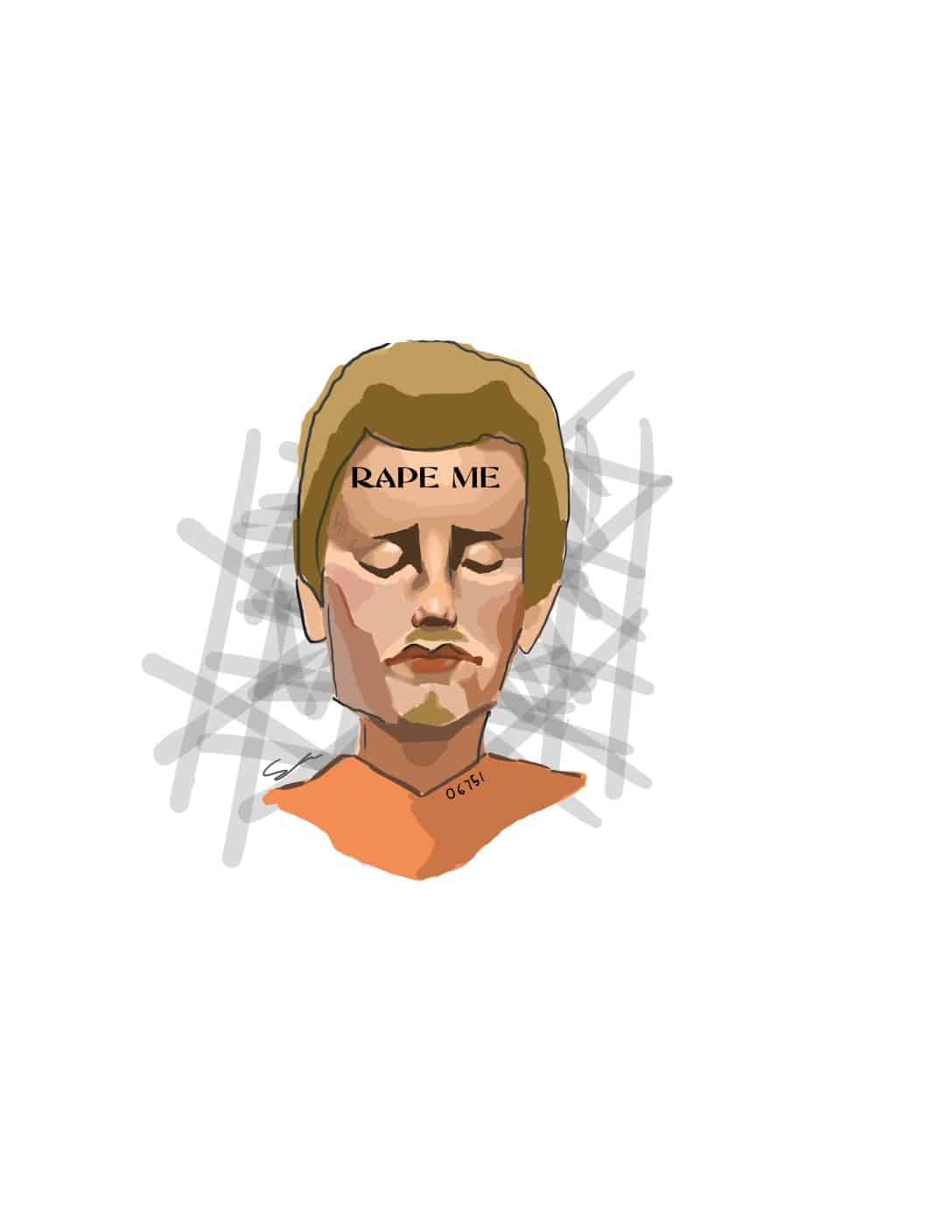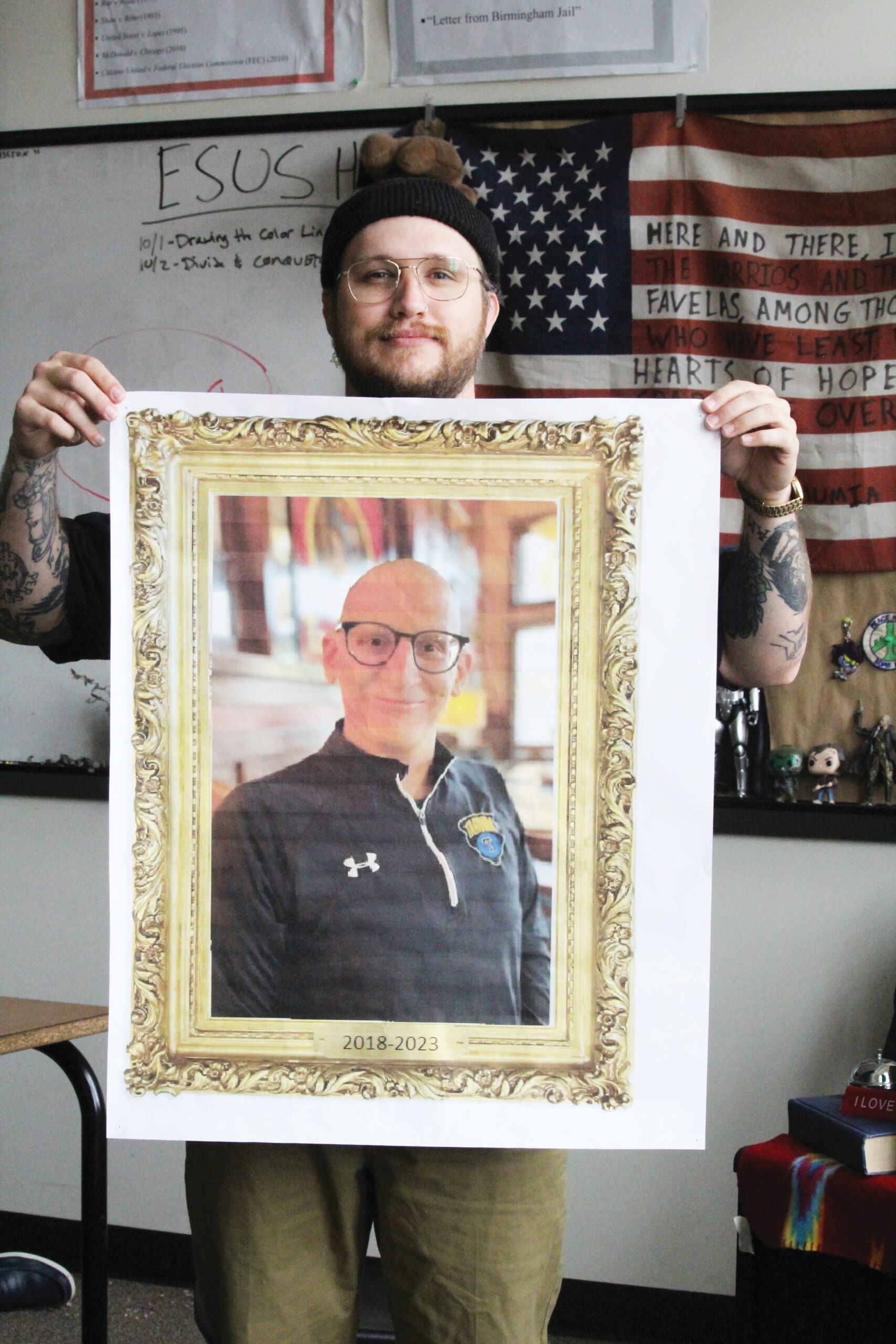Article written by staff reporters Nathan Bawaan and Natalie Delman
Guest speakers are not an anomaly at Roosevelt; they often come several times a year for assemblies and the occasional social studies class. Speakers often leave students thinking for a day; their message quickly is forgotten once the school bell rings. But Andre Norman, the first speaker in ASR’s guest speaker series, has inspired discussions at Roosevelt for many days following his presentations early last week. Norman’s lasting impact on the school stems from his unique take on motivational speaking.
Norman, a motivational speaker from Boston, travels around the world to inspire effective change within communities. He tells his life story: from when he first encountered racism on the way home from school to his time spent in prison. While difficult to hear at times, Norman provides many insightful lessons, making his story an important one to share. On November 27, Norman gave a presentation to a small group of community members in the Roosevelt library.
During his presentation, Norman told his personal definition of courage. “Courage isn’t the ability to walk up to someone and slug them, courage is the ability to walk up to someone and help them in a hard time,” he says. Unlike many at Roosevelt, this lesson did not come to Norman from a colorful storybook or lesson taught in grade school. It came from a mistake he made in prison, which he now carries with him daily. One of many staying in a sleeping dorm, Norman felt safe. As a strong, young, black man he knew he wouldn’t be messed with at night. The same could not be said for a small, blonde, white boy only a few bunks away from him: “He had ‘rape me’ all across his forehead.” While a devastating thought, occurrences like these were not uncommon. “There wasn’t one person but this kid who didn’t know what was gonna happen at eleven o’clock,” he narrates. The boy was of no importance to Norman, not a “homie”, nor a “brother”. With an event that happened often, why should this time be any different? Still, watching this boy, a thought occured to Norman: “‘Andre, go tell him, walk to the desk, tell the CO you want to take protective custody and get out of here’”. But Norman didn’t say anything, and the boy was later raped.
It would be easy to say Norman was selfish that day, a man who could have done something but instead did nothing, but he describes it differently. “Out of all the things I did in prison, I was scared that day,” he comments. Scared is not the first word used in a description of Andre Norman, an ex-gang leader, held in maximum security, and, to top it all off, kicked out of ten states for acts of violence. On paper, the man was a person to be scared of, not the other way around. But more often than not, before courage comes fear, and fear is inescapable by no one. Norman continues to regret his decision, stating, “Of all the things I’ve done right or wrong. If I could go back in time, I’d go back to that bunk.” Since the incident in prison, Norman has used his courage to help struggling communities around the world. And fortunately, many at Roosevelt and in the surrounding community do not have shared experiences with Norman. Nonetheless, they still understand fear. They still know when they have shown courage and when they have instead chosen to act as bystanders to cruelty. No matter our circumstances or graduation year, Norman reminds us that each day is a chance to break the cycle; a chance to have more courage than fear.
Andre Norman’s visit to Roosevelt has had a lasting impact on the students and community. His presentation provided students with many important life lessons, as well as introduced a new rule: “The Rousso Rule”. Named after late Roosevelt teacher, Mr. Rousso, who recently passed away, the rule centers around showing gratitude towards teachers and educators. Nevertheless, the biggest lesson from Norman’s speech is the significance of courage. As he says, “The truth is, when you see something, you need to do something.”
Graphic By: Elena Celovsky



